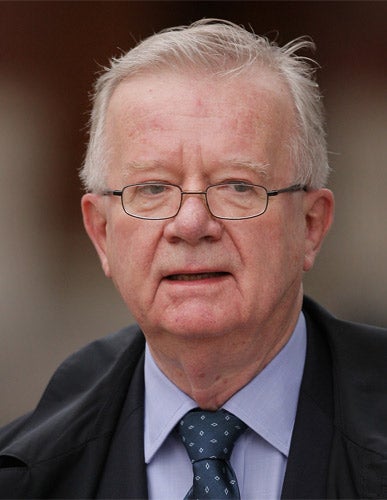Patrick Cockburn: Britain's ignorance of Iraq is already apparent

Ever since the invasion of Iraq in 2003 senior British officials have gently hinted that what went wrong was the fault of the Americans and, if there is any blame left over, it belongs to Tony Blair. The first day of the Chilcot inquiry suggests, on the contrary, that British mandarins of the day had little more idea of the mechanics of Iraqi politics than the most rabid and jingoistic neo-cons in Washington.
At no time, going by their evidence, did British officials in 2003 realise that the invasion of Iraq meant revolutionary change in the region. It would mean that the Sunni Arabs, who had traditionally ruled the country, would be displaced by the Shia and the Kurds. The Sunni were unlikely to go quietly.
The fall of Saddam Hussein was also going to start a political earthquake in the Gulf if it meant, as seemed likely, that the Sunni elite went with him. The main beneficiaries were going to be the Iranians, who had, after all, spent eight years of war trying to get rid of Saddam in the 1980s. Now the Americans and the British were doing it for them.
In Iran some Shia theologians argued at the time that the second coming of the Mehdi might well be at hand, because only divine intervention could have persuaded the Americans to behave so stupidly as to get rid of Iran's main enemies in Afghanistan and Iraq. The coming to power of a Shia-dominated regime in Iraq, the first in the Arab world since the time of Saladin, was bound to enhance Iranian influence over its neighbour.
Members of the Iraqi opposition in the weeks before the invasion were metaphorically touching wood in case the Americans and the British realised what they were getting into. In December 2002 I was at an Iraqi opposition conference in a hotel on Edgware Road in central London when an Iraqi friend spoke to me nervously: "I have only one fear," he said. "It is that the Americans will realise at the last moment that attacking Iraq and overthrowing Saddam Hussein is not in their own best interests."
The only way Washington could prevent a takeover by the Shia and an increase in Iranian influence was to decapitate Saddam's regime and put pro-American Sunni generals in charge. But this would have enraged the Shia and Kurds and the Americans could not rule without them. For the first year of the occupation the US tried to run Iraq alone and failed disastrously. The problems only eased when Shia and Sunni Arabs fought a murderous civil war which left them hating each other even more than they hated the US.
One reason why Iraq has seen such savage violence in the last six years is that the US and Britain together brewed a lethal cocktail. This put together communities, parties and factions intending to fight the occupation in alliance with outside powers – notably Iran and Syria. Iranian and Syrian intervention was hardly surprising since the Bush administration hinted that after the capture of Baghdad, Tehran and Damascus might be the next stops.
What is so striking about the wars in Iraq and Afghanistan is that the British foreign policy establishment seems to have lost its sense of what is dangerous and what is not. It may be that following dutifully behind the Americans is so ingrained that the capacity for independent judgement has atrophied.
In both Washington and Iraq before the invasion of 2003, there was a sense of British politicians and officials being slightly out of the loop. Perhaps this was inevitable once Mr Blair had promised to support the US regardless. But it is unfair and not very useful to blame Britain's misfortunes over Iraq all on him. It was British foreign policy-makers as a whole who seemed to forget the dangers of fighting wars in countries they had not taken the trouble to understand.
Join our commenting forum
Join thought-provoking conversations, follow other Independent readers and see their replies
Comments
Bookmark popover
Removed from bookmarks